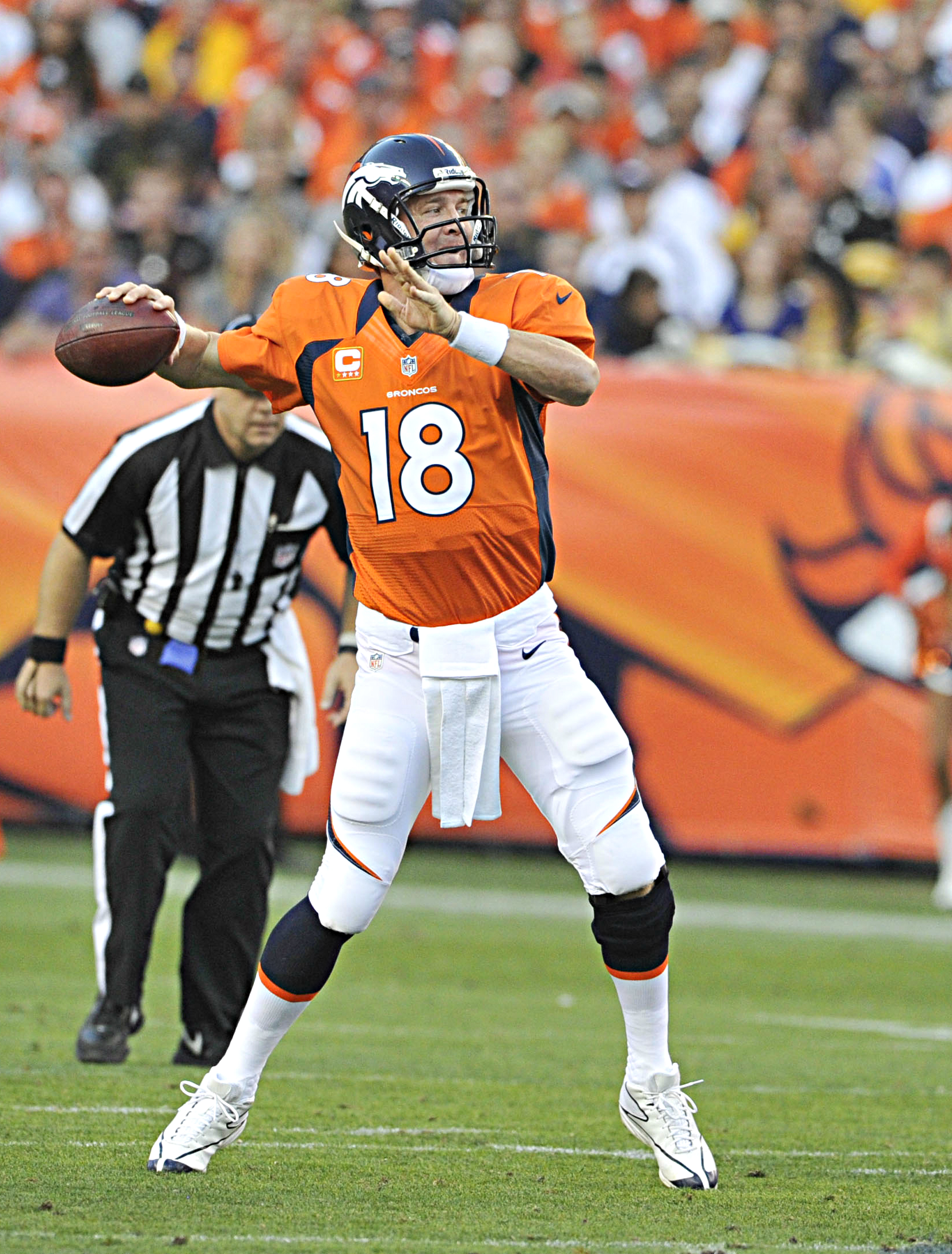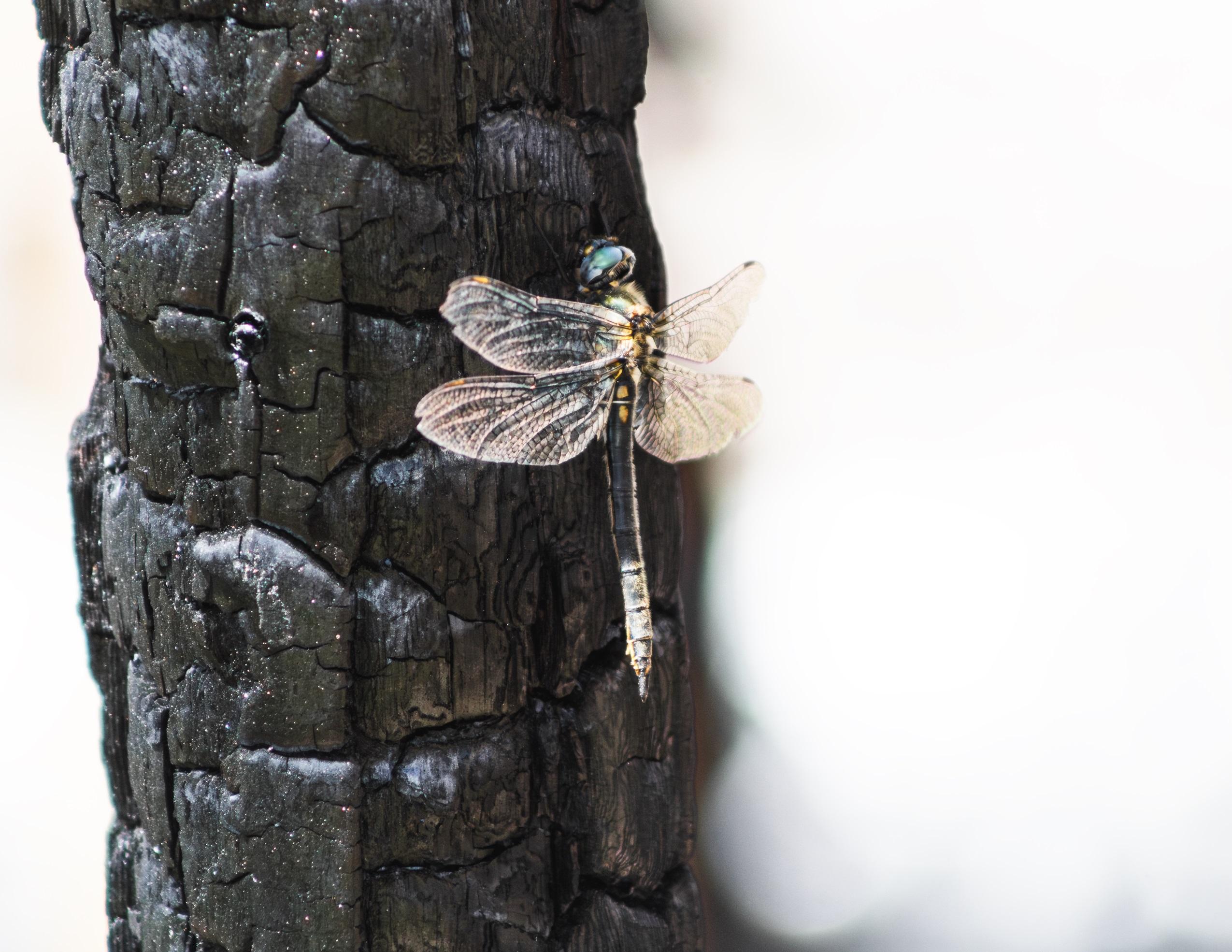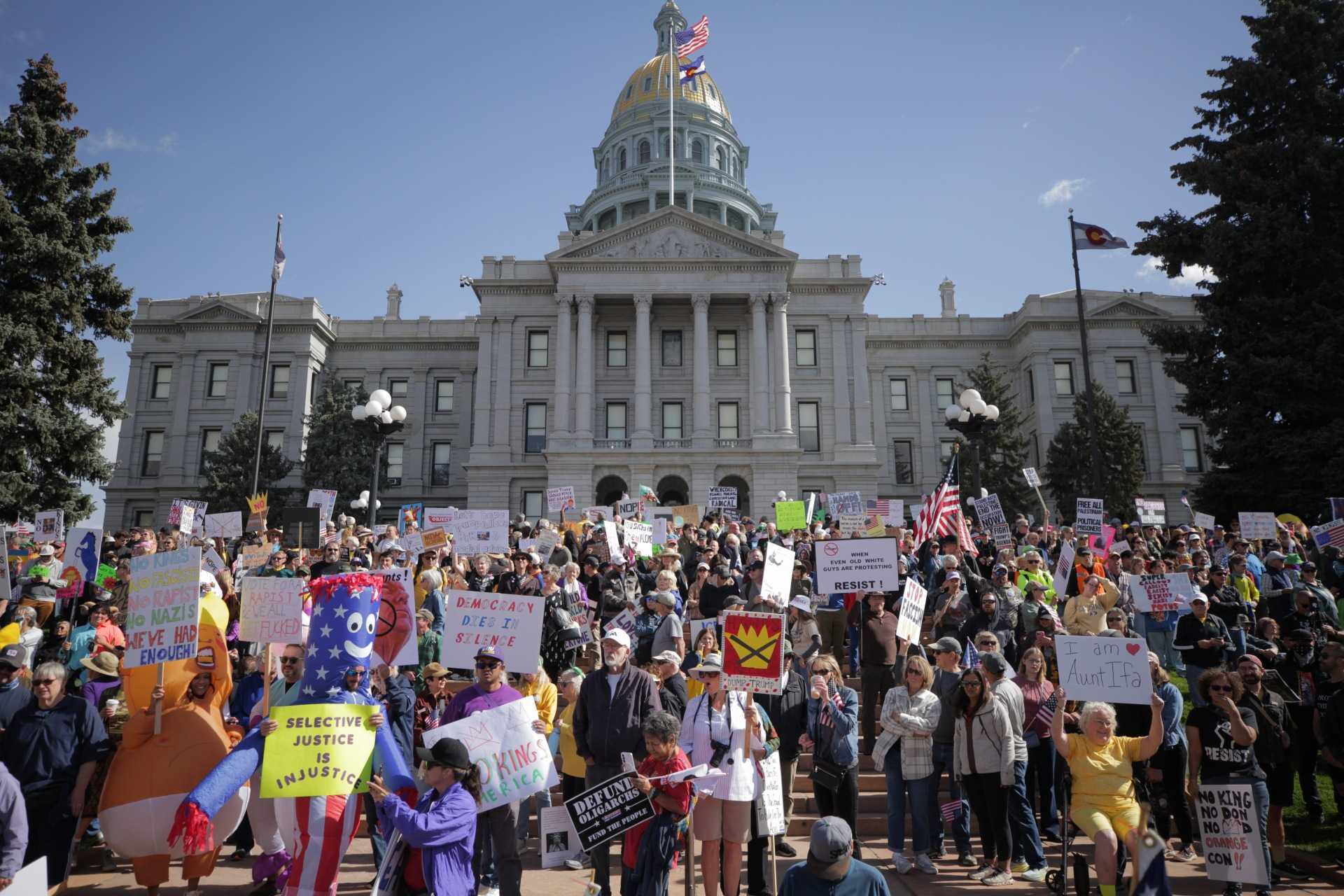
But even casual viewers not steeped in their history will probably notice something unique about Manning: The Broncos quarterback does a lot of talking just before the ball is snapped.
Over the years, Manning’s calls of “Bonanza” and “Dumbo” sometimes sound like secret military codes.
Manning has recently added a few more calls but the one that seems to come out most often is "Omaha."
In last week's playoff win over the San Diego Chargers, Manning said "Omaha" 44 times in 70 offensive plays, according to the NFL Network.
To find out what "Omaha" means, we called on NPR sports correspondent Mike Pesca, who is also a panelist on the Slate podcast "Hang up and Listen."
"Omaha," and the rest of what Manning says before the snap, can change daily, weekly or even during the game.
The pre-snap verbal cues are called audibles and allow Manning to react to what the defense is doing and help him fool the players on defense into making mistakes like neutral-zone infractions.
As Manning told NFL Films a few years ago, he needs linemen who are “smart, who can comprehend an audible with five seconds, make their calls, East, West, Slug, Dumbo, you name it."
Manning even acknowledged how bizarre they can sound to someone outside of football.
"Where do these words come from?” Manning asked. “What other business requires using words like this?”
Manning is a pioneer of this type of offensive strategy, one that uses a lot of audibles on the field. Several other NFL quarterbacks, including rival Brady and brother Eli Manning, have made audible play-calling a staple of their offenses. But Peyton Manning still seems to do it most often and with the most enthusiasm, often waiving his arms and hustling around to talk with each of his teammates on offense.
More traditional quarterbacks rely on the huddle for calling plays instead of making adjustments on the fly like Manning and the Broncos.
Manning addressed questions around his use of the word "Omaha" in a press conference on Wednesday with a little sarcasm.
"Omaha is a run play, but it could be a pass play, or a play action, depending on a couple things: the wind, which way we’re going, the quarter and the jerseys that we’re wearing,” Manning said. “So, it varies, really, play to play. So, there’s your answer to that one."








